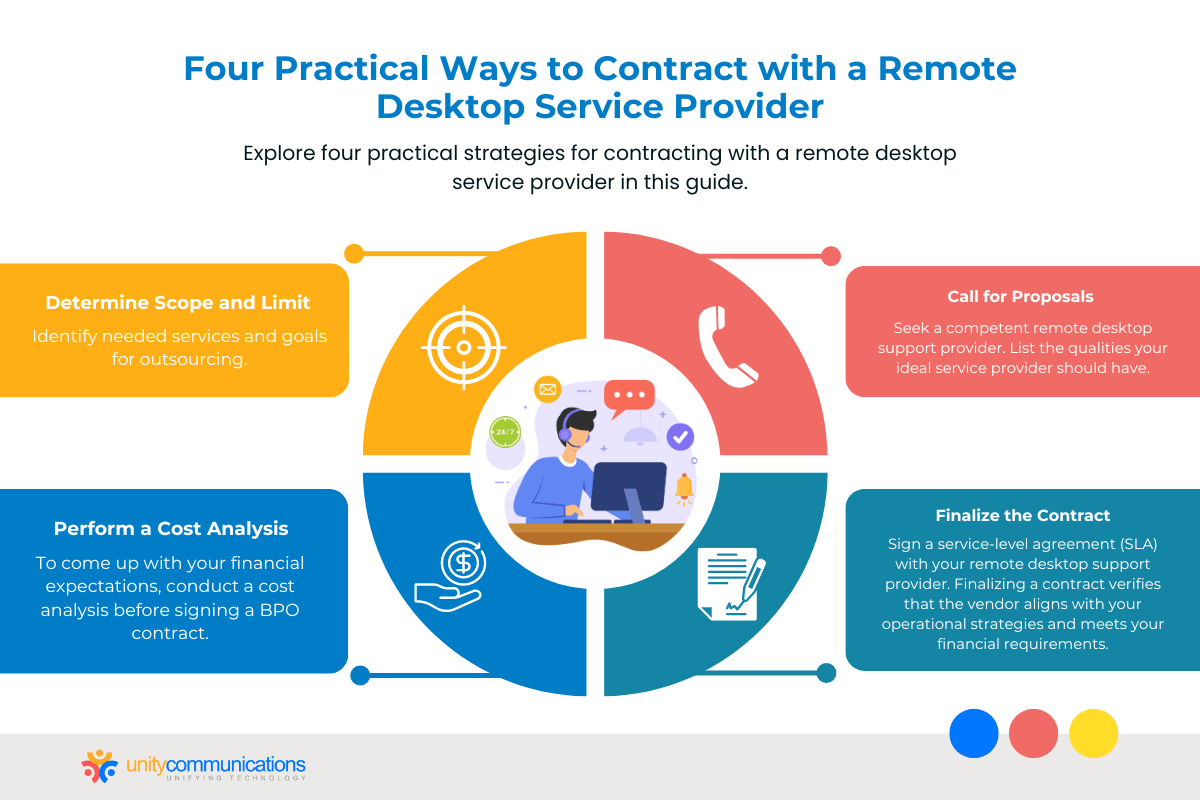Exactly How to Build a Successful Group of Remote Professionals
In today's increasingly digital landscape, the capability to construct an effective team of remote specialists is vital for companies intending to grow. It is the subtler facets-- like supporting a cohesive company society and promoting continual learning-- that can really set a remote group apart.
Define Clear Objectives and Assumptions
Frequently establishing clear goals and assumptions is essential for the success of a remote team (Remote Professionals). Without these components, employee may experience complication regarding their roles, responsibilities, and the general purposes of the job. This uncertainty can result in reduced efficiency, misaligned initiatives, and ultimately, project failing
To define clear objectives, it is crucial to utilize the wise criteria-- Particular, Measurable, Achievable, Pertinent, and Time-bound. This strategy makes certain that each objective is well-defined and can be efficiently communicated to all employee. It is essential to align specific goals with the overarching vision of the organization, cultivating a sense of purpose and dedication among team members.

Foster Effective Communication

Regular check-ins and team conferences can help preserve a solid communication circulation, allowing members to share progression updates and talk about any kind of obstructions they might experience. It is likewise vital to recognize that various people may have differing communication styles. Recognizing and accommodating these differences can bring about even more meaningful interactions and an extra natural team dynamic.
Additionally, clearness is necessary in all kinds of interaction, whether created or verbal. Urge employee to verbalize their ideas succinctly and to look for explanation when required. This approach makes certain and decreases misconceptions that every person is on the exact same page. By prioritizing efficient communication, remote teams can improve efficiency, enhance partnerships, and develop an extra comprehensive work environment, ultimately resulting in greater success in accomplishing common goals.

Make Use Of the Right Tools
To sustain efficient interaction within a remote team, it is necessary to utilize the right devices that facilitate partnership and simplify workflows. The option of devices can dramatically affect performance, ensuring that employee remain connected and engaged regardless of geographical distances.
Begin by carrying out task management software program, such as Trello or Asana, to organize tasks, established target dates, and track progress. This fosters responsibility and gives presence into each member's contributions. Furthermore, communication platforms like Slack or Microsoft Teams use instantaneous messaging capacities, enabling real-time discussions and quick decision-making.
Video conferencing tools, such as Zoom or Google Meet, are necessary for in person communications, which aid develop relationship and strengthen relationships among employee. Additionally, file sharing and storage options like Google Drive or Dropbox make certain that important documents are editable and available by all staff member, advertising partnership on jobs.
Incorporating these tools effectively creates a setting where remote specialists can flourish. By choosing the best technology, companies can improve communication, improve task administration, and eventually achieve their objectives a lot more successfully.
Construct a Strong Company Society
Developing a strong firm culture within a remote group is necessary for promoting engagement and commitment among workers. A distinct culture gives a sense of belonging and shared objective, which is essential when employee are distributed across different locations. To grow this society, see leaders ought to develop clear values and expectations that reverberate with staff members, making sure that everyone comprehends the goal and vision of the organization.
Normal interaction is vital in strengthening this culture. Using video telephone calls, team conferences, and casual check-ins can help preserve connections and promote transparency. In addition, commemorating achievements, both tiny and large, enhances a society of recognition and recognition.
Urging group collaboration through online systems not just boosts performance but likewise cultivates social relationships - Remote Professionals. Organizing virtual team-building activities can additionally enhance bonds amongst group participants, making them really feel extra incorporated right into the firm
Lastly, it is very important to listen to worker comments and adapt as needed. By showing that their voices matter, leaders can build trust and loyalty, ultimately producing a growing remote workplace where staff members really feel valued and engaged.
Motivate Continuous Knowing and Advancement
A strong company society lays the foundation for motivating continual understanding and advancement within a remote team. By fostering an environment that values growth, companies can encourage workers to improve Visit Website their abilities, adapt to new obstacles, and inevitably add extra successfully to team objectives.
To advertise continual discovering, think about implementing normal training sessions, workshops, and webinars that straighten with both private career goals and organizational demands. Utilize innovation to facilitate accessibility to e-learning platforms, guaranteeing that sources are easily available for remote staff member.
Encourage expertise sharing by establishing mentorship programs and producing forums for employees to exchange insights and finest practices. Compensating and recognizing employee that actively involve in discovering campaigns strengthens the relevance of advancement and encourages others to comply with match.
Additionally, conducting routine responses sessions can assist recognize skill spaces and locations for improvement, enabling customized advancement strategies. By prioritizing constant understanding and advancement, remote groups can grow a culture of technology, adaptability, and durability, which are vital for browsing the complexities of today's organization landscape.
Conclusion
In final thought, the facility of an effective remote team depends upon the combination of clear objectives, reliable interaction, appropriate tools, a durable firm culture, and constant discovering possibilities. By straightening individual contributions with business purposes and fostering an atmosphere of openness and collaboration, remote professionals can flourish. Remote Professionals. The implementation of these techniques not only enhances team cohesion but also drives inspiration, inevitably bring about boosted efficiency and success in a remote functioning landscape
It is the subtler elements-- like nurturing a cohesive company culture and advertising continual understanding-- that can genuinely establish a remote team apart.Effective interaction is the keystone of a growing remote group. By prioritizing effective communication, remote groups can improve efficiency, strengthen partnerships, and produce a much more inclusive job atmosphere, ultimately leading to greater success in attaining typical goals.
Creating a solid business culture within a remote group is vital for promoting engagement and commitment among staff members.In final thought, the establishment of an effective remote team hinges on the assimilation of clear objectives, effective interaction, proper tools, a click to find out more durable company society, and continuous understanding possibilities.